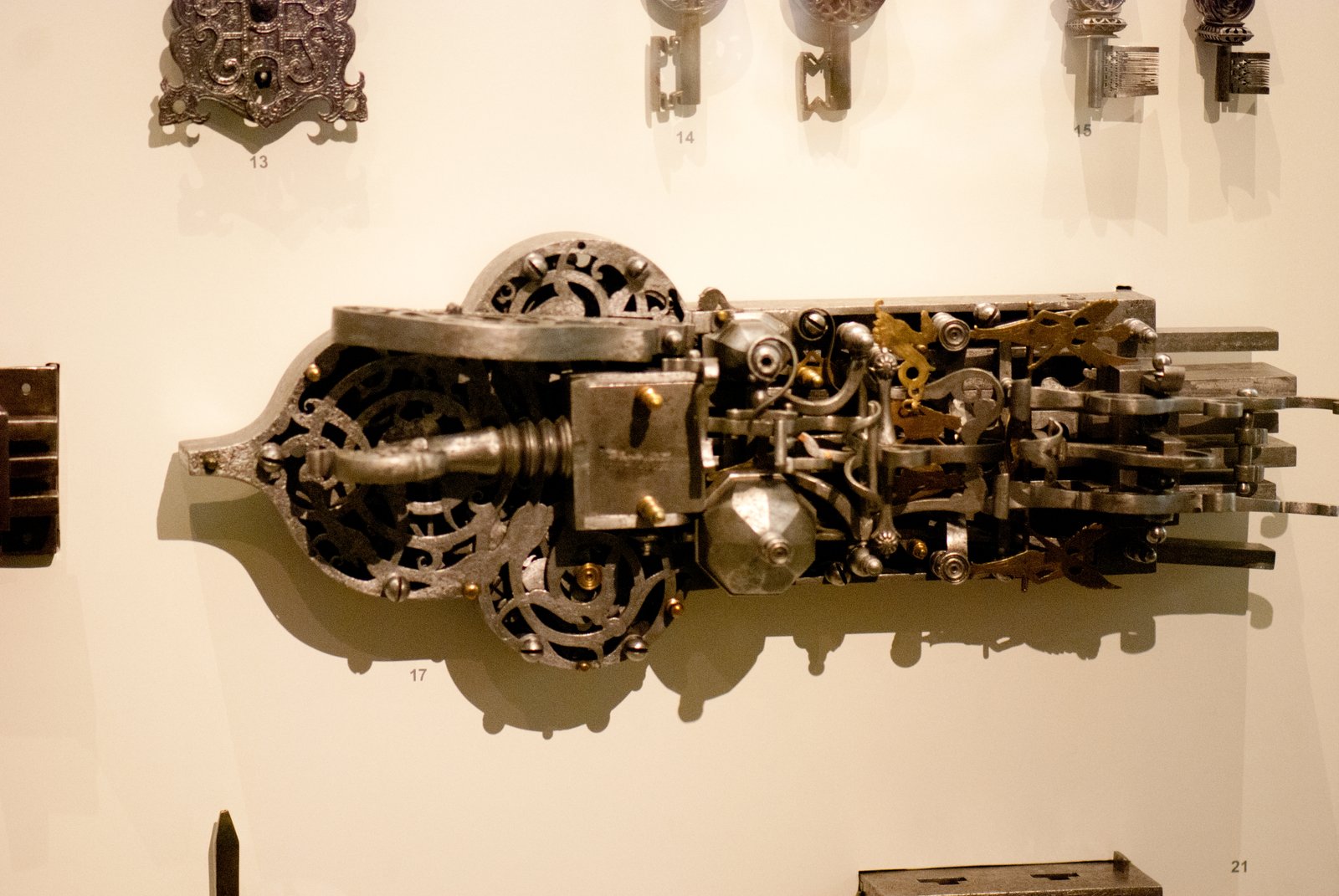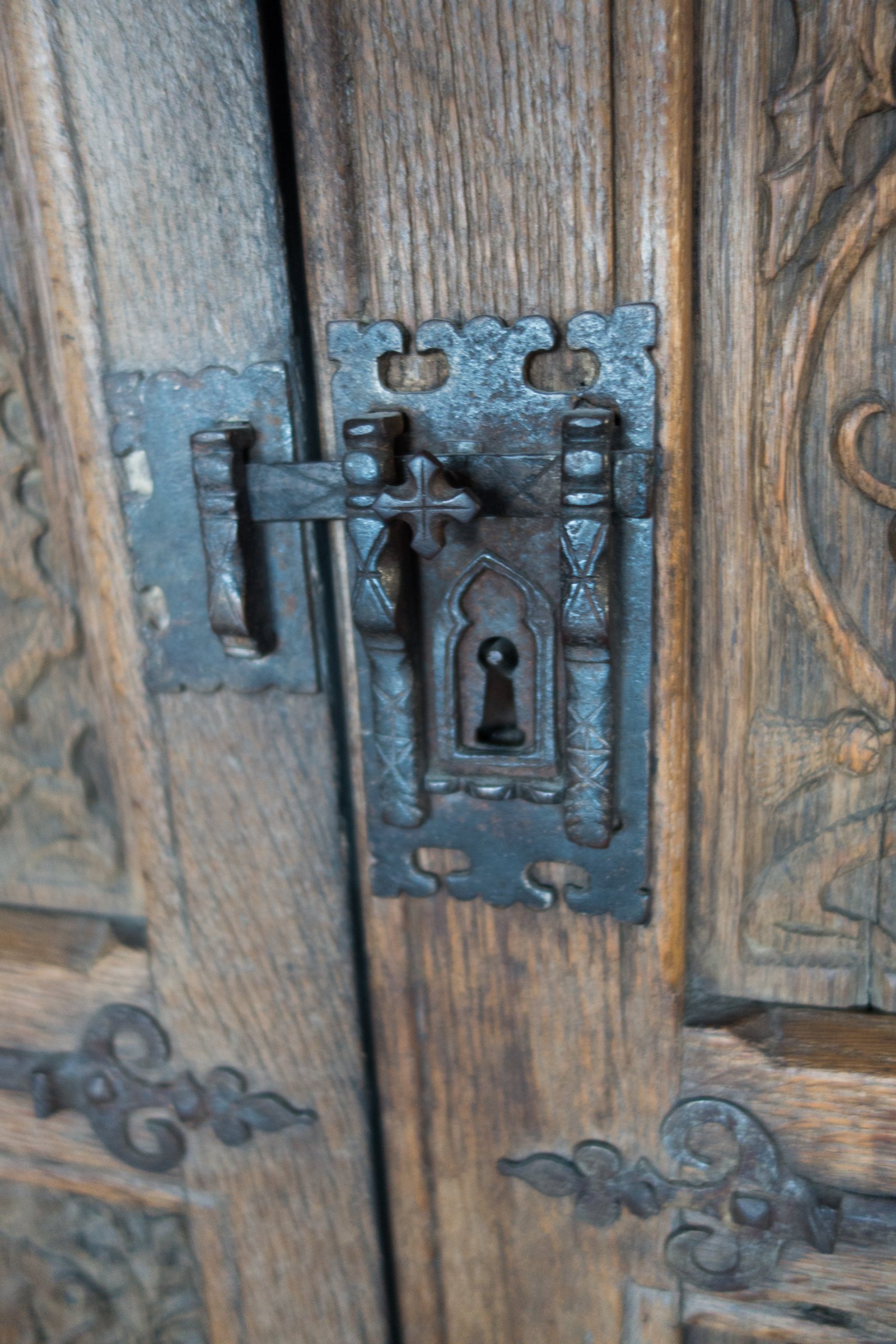Imagine you’re in a dimly lit room, fumbling for an important document amidst stacks of papers and folders. Frustration gnaws at you as your fingers turn cold, desperately seeking a solution. Suddenly, your eyes lock onto a majestic file cabinet standing tall in the corner, its silver exterior gleaming with promise. But the question lingers: how can this seemingly impenetrable fortress protect your confidential files? Fear not, dear reader, for in this comprehensive guide, we shall unravel the mysteries of the file cabinet lock. Get ready to embark on a journey that will demystify the inner workings of this compact marvel and grant you the key to understanding its secure embrace. Let us delve into the world of file cabinet locks and discover the intricate mechanisms that safeguard our most treasured information.
Table of Contents
- Understanding the Basics of a File Cabinet Lock Mechanism
- Exploring the Different Types of File Cabinet Locks
- Factors to Consider When Choosing a File Cabinet Lock
- Maintaining and Troubleshooting Your File Cabinet Locks
- Expert Recommendations for Enhancing File Cabinet Security
- Q&A
- To Wrap It Up

Understanding the Basics of a File Cabinet Lock Mechanism
When it comes to ensuring the security of important documents, is crucial. These mechanisms may vary depending on the type of file cabinet, but they all serve the same purpose – providing a safeguard against unauthorized access.
Types of File Cabinet Lock Mechanisms:
- Pin Tumbler Lock: This common type of lock consists of a series of pins of different lengths. When the correct key is inserted, the pins align at the shear line, allowing the lock to turn.
- Tubular Lock: Utilizing a cylindrical key, this mechanism has pins aligning radially in a circular pattern. The key must fit precisely in order to rotate the lock cylinder and disengage the bolt.
- Cam Lock: Featuring a metal cam, this type of lock rotates to open or close the cabinet. It can be secured with either a key or a combination.
Components of the Lock Mechanism:
- Lock Cylinder: The main body of the lock where the key is inserted and turned.
- Bolt: Typically a metal bar or latch that extends from the lock body and fits into a strike plate to secure the cabinet.
- Cam: Found in cam locks, it is responsible for pushing or pulling the bolt when rotated.
- Keyway: The specific shape of the key entry point in the lock cylinder.
By understanding these essential components and various types of lock mechanisms, you can choose the most appropriate one for your file cabinets, ensuring the safety and confidentiality of your important documents.

Exploring the Different Types of File Cabinet Locks
Many people overlook the importance of file cabinet security, but it is an essential aspect of keeping sensitive documents safe. There are various types of file cabinet locks available, each offering a unique level of protection. By , you can choose one that suits your needs and ensures the utmost security for your documents.
1. Keyed Locks: These locks are the most traditional and widely used option. They require a physical key to unlock the cabinet. Keyed locks offer a reliable level of security, as only those with the key can access the contents. It is crucial to keep the key in a safe place and ensure that it is not lost or stolen.
2. Combination Locks: Combining convenience with security, combination locks are popular among those who prefer not to deal with keys. These locks utilize a numerical code that needs to be inputted correctly to open the cabinet. Combination locks are a suitable choice for those who have multiple users or frequently need to access the cabinet but want to keep it secure.
3. Electronic Locks: With advancements in technology, electronic locks have become increasingly popular in recent years. These locks often use a keypad or a biometric scanner to grant access. The advantage of electronic locks is that they offer a high level of security, as the combination or biometric details can be easily changed or updated when required.
Remember, when choosing a suitable lock for your file cabinet, consider the level of security you require, the number of users who need access, and your budget. Opt for a lock that provides maximum protection for your valuable documents while ensuring ease of use.
Factors to Consider When Choosing a File Cabinet Lock
When it comes to keeping your important documents secure, choosing the right lock for your file cabinet is crucial. With a multitude of options available on the market, it can be overwhelming to make the right choice. To help you in your decision-making process, here are some key factors to consider:
- Security Level: First and foremost, prioritize the level of security that the lock provides. Look for locks that offer advanced features like pick resistance, drill resistance, and tamper-proof mechanisms. A robust lock will ensure the confidentiality and integrity of your files.
- Locking Mechanism: The type of locking mechanism is equally important. Consider whether you prefer a traditional key lock, a combination lock, or a digital lock. Each option has its pros and cons, so choose the one that aligns with your convenience and security needs.
- Durability: A file cabinet lock should be durable enough to withstand daily usage and potential attempts to break it. Opt for locks made of high-quality materials like hardened steel. Additionally, check if the lock has a warranty to ensure its longevity.
- Key Management: If you choose a key lock, think about how you will manage and keep track of the keys. If multiple individuals require access, consider a lock with the ability to create duplicate keys or keyless entry options to enhance convenience.
- Installation and Compatibility: Lastly, ensure that the lock you choose is compatible with your file cabinet model and can be easily installed. This will save you time and additional expenses.
By considering these factors, you can confidently select a file cabinet lock that meets your security needs, protects your valuable documents, and provides peace of mind.

Maintaining and Troubleshooting Your File Cabinet Locks
Keeping your file cabinet locks in good working condition is essential for maintaining the security of your important documents. This section provides some useful tips to help you maintain and troubleshoot your file cabinet locks:
- Regular Cleaning: Dust and debris can accumulate in lock mechanisms over time, causing them to become less effective. Regularly clean the locks using a soft brush or compressed air to remove any dirt or buildup.
- Lubrication: Apply a small amount of graphite-based or silicone-based lubricant to the keyholes and lock mechanisms. This helps to ensure smooth operation and prevents the locks from jamming.
- Tightening Connections: Check that all screws and connections are securely tightened. Loose connections can affect the alignment and functionality of your locks.
If you encounter any issues with your file cabinet locks, here are some troubleshooting steps you can follow:
- Sticky Locks: If your key seems to get stuck or the lock is difficult to turn, try applying a small amount of powdered graphite to the keyhole. This should help to lubricate the mechanism and alleviate the stickiness.
- Jammed Locks: If your lock is completely jammed and the key won’t turn at all, confirm that no foreign objects are obstructing the keyhole. Gently use a thin, rigid object like a paperclip to remove any obstructions.
- Key Doesn’t Fit: Sometimes, keys can become slightly bent or worn, making them difficult to insert into the lock. If you encounter this issue, consider having a duplicate key made or contact a professional locksmith for assistance.
By following these maintenance tips and troubleshooting steps, you can ensure that your file cabinet locks remain in optimal condition, allowing you to safeguard your sensitive documents and maintain the overall security of your office space.
Expert Recommendations for Enhancing File Cabinet Security
When it comes to securing your important documents and files, taking extra measures can go a long way in preventing unauthorized access. Here, we have gathered some expert recommendations to enhance file cabinet security:
- Invest in High-Quality Locks: One of the first steps to improving file cabinet security is to install high-quality locks. Consider getting locks that are pick-resistant and tamper-proof to deter any potential intruders.
- Implement Access Control: Limiting access to your file cabinets is essential. Determine who needs access to the files and consider implementing access control measures such as key cards, PIN codes, or biometric authentication.
- Secure the Cabinet to the Floor: Prevent theft or unauthorized removal of the entire file cabinet by securely attaching it to the floor. This will make it significantly more difficult for someone to walk away with your files.
- Keep an Inventory: Create a detailed inventory of all the documents stored in your file cabinet. Regularly update and maintain this inventory to ensure that nothing goes missing or is misplaced.
- Regularly Audit Access: Conduct periodic audits to review who has accessed the files and when. This will help identify any suspicious behavior and enable you to take immediate action if necessary.
By following these expert recommendations, you can significantly enhance the security of your file cabinet and better protect your important documents from unauthorized access.
Q&A
What is a file cabinet lock?
A file cabinet lock is a mechanism designed to secure the contents of a file cabinet by preventing unauthorized access. It ensures that only authorized individuals can open the cabinet and access its contents.
How does a file cabinet lock function?
File cabinet locks typically operate using a combination of pins, springs, and keys. When the correct key is inserted into the lock, the pins align and the lock cylinder can be turned, allowing the cabinet to be unlocked or locked.
What are the different types of file cabinet locks?
There are various types of file cabinet locks, including keyed locks, combination locks, and electronic locks. Keyed locks require the use of a physical key, while combination locks use a predetermined combination of numbers or letters. Electronic locks, on the other hand, utilize electronic keypads or swipe cards for access.
Can a file cabinet lock be picked?
Yes, file cabinet locks can be picked, although it requires skill and specialized tools. Some locks, especially more advanced electronic ones, may be more resistant to picking attempts compared to traditional keyed locks.
What are some additional security features in file cabinet locks?
Many file cabinet locks offer additional security features such as master key systems, which allow specific individuals to have access to multiple cabinets using a single key. Other locks may have built-in alarms or tamper-resistant features, providing a higher level of security against unauthorized access.
Can a file cabinet lock be replaced?
Yes, file cabinet locks can be replaced. If a lock is damaged, malfunctioning, or if the key is lost, it is possible to replace the lock with a new one. It’s important to choose a high-quality lock and ensure it is installed correctly to maintain the security of the cabinet.
Are there any maintenance practices for file cabinet locks?
Regular maintenance for file cabinet locks is recommended to ensure their proper functioning. This may include periodic lubrication of the lock mechanism, checking for loose or worn parts, and promptly addressing any issues that arise. Following the manufacturer’s recommendations can help prolong the life of the lock.
What should I do if I lose the key to my file cabinet lock?
If you lose the key to your file cabinet lock, it is advisable to contact a professional locksmith to assist you. They can evaluate the lock and either provide a duplicate key or replace the lock altogether, depending on the circumstances. It’s important to establish your ownership of the file cabinet to ensure proper authorization.
To Wrap It Up
And there you have it, the inner workings of a file cabinet lock unveiled in all its intricacy. From the humble tumbler pins to an elegantly designed locking mechanism, this comprehensive guide aimed to demystify the mystical maze of the file cabinet lock.
Next time you encounter that familiar click as you secure your most valuable documents or treasured memories within the file cabinet’s embrace, take a moment to appreciate the symphony of precision and engineering at play. Each turn of the key is a testament to the ingenuity of human innovation.
Whether you found yourself captivated by the mesmerizing dance of the lock’s components or simply sought a quick fix for a jammed drawer, we hope this article filled the void of curiosity lurking within. Armed with the knowledge of how a file cabinet lock works, you can now approach your storage cabinet with newfound appreciation and confidence.
As with any mechanical contraption, it is essential to treat your file cabinet lock with care and respect. Proper maintenance, occasional lubrication, and a vigilant eye against inherent vulnerabilities are the keys to ensure its long-term functionality.
So, dear reader, let this guide be your companion on a journey to understanding the hidden world of file cabinet locks. May it empower you to safeguard your secrets, protect your important documents, and instill a sense of security in your daily routine.
Remember, behind every locked drawer lies the possibility of untold stories, valuable information, or cherished moments longing for preservation. And with a little key, a well-crafted lock will securely guard them, granting you peace of mind.
In the ever-evolving world of security, where electronic advancements gallop ahead, it is comforting to know that the simple elegance of a file cabinet lock remains steadfast, a symbol of reliability in an uncertain age.
So, go forth, dear reader, and unlock the world of knowledge. Safeguard your aspirations, protect your dreams, and preserve what matters most. The knowledge you now possess ensures that every twist of the key is an ode to the beauty of the file cabinet lock’s mechanism.
Farewell, curious mind, until our next exploration into the enchanting depths of the ordinary.
As an affiliate, my content may feature links to products I personally use and recommend. By taking action, like subscribing or making a purchase, you’ll be supporting my work and fueling my taco cravings at the same time. Win-win, right?
Want to read more? Check out our Affiliate Disclosure page.